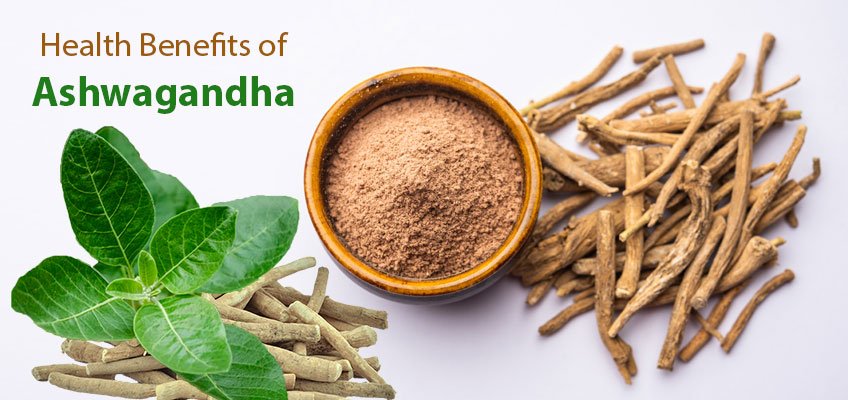Table of Contents
Discover the remarkable benefits of ashwagandha, a powerful herb used in Ayurvedic medicine. Learn how it can reduce stress, improve sleep, and enhance cognitive function.
Ashwagandha is a highly revered herb in Ayurvedic medicine, known for its remarkable benefits in reducing stress, improving sleep quality, and enhancing cognitive function. This powerful adaptogen has been used for centuries to promote overall well-being and combat the effects of chronic stress.
In this article, we will delve into the unique benefits of ashwagandha and explore how it can be a valuable addition to your health routine. From its stress-reducing properties to its potential to improve sleep and cognitive function, ashwagandha is a herb that deserves attention for its remarkable health benefits.
Ashwagandha explained

Let’s talk about this amazing herb called ashwagandha .
I wanna talk about the dosage , when to take it , when not to take it , there’s certain precautions , but also some benefits that you probably have never heard before .
This is an amazing herb .
Ashwagandha , comes from the derivation of a Hindi name , ashgan , which refers to horse’s odor , as in horse’s urine .
Apparently , this herb does have a scent of horse’s urine .
But that being said , this herb is quite magical what it does .
| Aspect | Details |
|---|---|
| Name Origin | Hindi word “ashgan”, meaning “horse’s odor” |
| Recommended Dosage | 250-500 mg twice daily (capsules) 2-4 mL (40-80 drops) thrice daily (tincture, 1:5 ratio) |
| Primary Effect | Reduces nervousness; acts as an adaptogen |
| Key Benefits | – Lowers cortisol levels – Reduces stress and anxiety – Improves sleep quality – Enhances cognitive function – Increases stamina and strength – Anti-inflammatory properties – Stimulates thyroid (for hypothyroid) – Boosts immune system – Improves male fertility – Reduces pain and muscle spasms |
| Mechanisms | – Affects hypothalamus-pituitary-adrenal axis – Influences cortisol and adrenaline |
| Cellular Effects | Increases heat shock proteins |
| Contraindications | – Nightshade sensitivity – Iron accumulation disorders – Hyperthyroidism – Use with barbiturates or thyroid hormones |
| Pregnancy Use | Traditional use in India, but lack of human safety studies |
Ashwagandha dosage

So let’s dive right in .
As far as the amounts that are recommended based on , randomized controlled trials , you’d want to consume between 250 milligrams to 500 milligrams twice per day .
If you’re doing a tincture , like a 1 to 5 ratio , it’s recommended that you take between 2 and 4 milliliters .
That’s roughly between 40 80 drops , 3 times a day .
Now , personally , I don’t like the drops in alcohol because I just don’t like alcohol .
So , I like the capsules , but a lot of people like the , tinctures , and it seems to work just fine .
Ashwagandha benefits
Now , the most profound effect that this herb has on people is if you feel nervous , this is the best herb to take .
Ashwagandha is an adaptogen . Now what is an adaptogen ?
A safe substance that helps you adapt to stress states .
Adaptogens help you resist stress , tolerate and cope with stress better , and also help bring the body back to a normal state .
Apparently , it’s really good for any problems related to the autonomic nervous system because the sympathetic nervous system is the system that adapts the body to stress .
And then the parasympathetic , which is the other branch of the autonomic nervous system , helps recover the person from going through stress .
So apparently this herb helps both parts of that puzzle .
And since we’re talking about stress , there’s 2 main mechanisms that the body uses to deal with stress .

1 is through the hypothalamus pituitary adrenal axis .
And that mainly has to do with the hormone aspects of stress , specifically cortisol , which is released by the outer part of the adrenal glands called the cortex .
Whereas the other mechanism which is also controlled by the hypothalamus , okay , has mainly to do with the inner part of the adrenal gland called the medulla , and specifically adrenaline .
So we have cortisol and adrenaline .
Adrenaline is a neurotransmitter , cortisol is a hormone .
Both of these systems are involved with stress , and ashwagandha can help both mechanisms .
So ashwagandha has been known to significantly lower cortisol , which is very cool .

Which is going to then help you potentially lose weight as well and improve insulin resistance because too much cortisol can cause insulin resistance , and that can create all sorts of problems from a metabolic syndrome issue , which affects your lipids , to blood sugar , to fatty liver , to being a prediabetic .
And also , cortisol is involved with , stress induced insomnia .
Not to mention , adrenaline is also involved .
| Benefit | Description |
|---|---|
| Stress Relief | Reduces symptoms of stress and anxiety by lowering cortisol levels. |
| Sleep Improvement | Improves sleep quality, sleep onset, and sleep efficiency. |
| Cognitive Function | Enhances memory, reaction time, and the ability to perform tasks. |
| Physical Performance | Increases VO2 max and muscle strength. |
| Immune System Support | Regulates and balances the immune system. |
| Anti-Inflammatory | Reduces inflammation and oxidative stress. |
| Anti-Cancer | May have potential anti-cancer properties. |
| Hormone Regulation | Helps regulate thyroid hormones and cortisol levels. |
| Mood Enhancement | Improves mood and reduces symptoms of depression. |
| Skin Health | May improve skin health by reducing inflammation and promoting collagen production. |
| Hair Health | May improve hair health by reducing hair loss and promoting hair growth. |
| Nervous System Support | Supports the nervous system by reducing nerve inflammation and promoting nerve health. |
| Cardiovascular Health | May improve cardiovascular health by reducing blood pressure and improving blood lipid profiles. |
| Bone Health | May improve bone health by increasing bone mineral density. |
| Fertility | May improve fertility in both men and women. |
| Menstrual Health | May regulate menstrual cycles and reduce PMS symptoms. |
| Pregnancy | May be beneficial for pregnant women by reducing stress and improving sleep. |
| Postpartum | May help with postpartum depression and improve overall health. |
| Men’s Health | May improve sexual function and testosterone levels. |
| Women’s Health | May improve reproductive health and reduce symptoms of menopause. |
| Neuroprotective | May protect against neurodegenerative diseases like Alzheimer’s and Parkinson’s. |
| Anti-Aging | May slow down the visible signs of aging by reducing oxidative stress. |
| Digestive Health | May improve digestive health by reducing inflammation and promoting gut health. |
| Inflammation Reduction | Reduces inflammation in the body, which can help with various health issues. |
| Oxidative Stress Reduction | Reduces oxidative stress, which can contribute to chronic diseases. |
| Adaptogenic | Acts as an adaptogen, helping the body adapt to stress and improve overall health. |
So this herb can help you sleep better , especially if the cause of that sleep problem occurred from stress .
And because the lowering of cortisol is occurring , you’re going to feel calmer , you’re going to have less anxiety , you’ll have better brain function , less brain fog , and overall better cognitive function .
Ashwagandha has been known to improve stamina , which is endurance , strength while exercising .
It’s a good anti inflammatory .
It’s also been known to help stimulate the thyroid .
So it’s really good for hypothyroid type situations , but not necessarily if you have a hyperthyroid , which we’ll get to in a bit .

And because ashwagandha helps regulate cortisol , it’s gonna help your immune system .
Anything related to dysregulation with cortisol is going to affect your immune system .
Ashwagandha has also been known to improve male hormones , specifically testosterone , which can improve sex drive .
Also sperm count , as well as sperm mobility .
So it’s involved with improving male fertility .
Ashwagandha is also good for pain , helping people with low back pain , improving , spasm , muscle spasm , and it’s good for fluid retention .
Now at the cellular level , ashwagandha can help increase something called heat shock proteins , which is involved in the hermetic effect , which basically has to do with getting the benefits from a moderate intermittent stress causing the body to adapt and become stronger .
So those are some really cool effects that can occur when you take ashwagandha .
Who should avoid ashwagandha?
Now when wouldn’t you wanna take ashwagandha ?
If you have a sensitivity to the nightshades , okay , you probably don’t wanna take it .
Ashwagandha is high in iron .
So if you have a genetic problem where you accumulate iron and you can’t get rid of it easily , ashwagandha is not good for you .
Ashwagandha is good if someone is iron deficient because it’s loaded with iron .
But you don’t wanna take it if you have too much iron .

And like I mentioned before , ashwagandha is good for hypothyroid situations , but not a hyper thyroid situation .
And so if your thyroid gland is working too much , as in you have , what’s Graves’ disease , don’t take ashwagandha .
Ashwagandha also enhances the effect of barbiturates and the thyroid hormone .
So if you’re taking those 2 medications , you might not wanna take ashwagandha .
Ashwagandha and pregnancy

Now as far as pregnancy goes , there’s some interesting data on this .
It’s been used in India for a long time , even with women that are pregnant .
It’s been used like as a a tonic , and sometimes they put it in milk .
However , there are no safety studies that look at pregnant women taking this herb .
There’s some animal studies that shows that taking large amounts , does not have a bad effect , but there is no studies with humans .
key Points
Top potential benefits of ashwagandha:
- Lowers stress and anxiety
- Supports weight loss
- Reduces insulin resistance
- Promotes quality sleep
- Enhances cognitive function
- Improves stamina and strength while exercising
- Reduces inflammation
- Stimulates the thyroid
- Enhances the immune system
- Supports healthy testosterone levels
- Decreases pain
- Improves muscle spasms
- Reduces fluid retention
- Increases heat shock proteins
When to avoid ashwagandha:
• If you have a sensitivity to nightshades
• If you have excess iron or a genetic tendency to accumulate iron
• If you have hyperthyroidism
• If you take barbiturates or thyroid hormones
- Consider consuming 250 milligrams to 500 milligrams of ashwagandha twice per day.
- If using a tincture at a one-to-five ratio, it’s recommended that you take between two and four milliliters three times a day.
DATA
https://pubmed.ncbi.nlm.nih.gov/31517876
https://www.nmi.health/ashwagandha-a-review-of-clinical-use-and-efficacy
https://pubmed.ncbi.nlm.nih.gov/24882401
https://pubmed.ncbi.nlm.nih.gov/36516058
https://www.ncbi.nlm.nih.gov/pmc/articles/PMC3573577
FAQ
What is so special about ashwagandha?
Ashwagandha is a revered herb in Ayurvedic medicine, the traditional Indian system of natural healing. It is considered a “rasayana,” which means it has rejuvenating and restorative properties. Ashwagandha is classified as an “adaptogen,” meaning it helps the body adapt to and cope with physical and mental stress.
Some of the key features that make ashwagandha so special include:
Stress-Reducing Properties
Ashwagandha is perhaps best known for its ability to reduce stress and anxiety. It has been shown to lower cortisol levels, the primary hormone associated with stress, in both animal and human studies.[1][2]
Cognitive Benefits
Ashwagandha may enhance cognitive function, including memory, reaction time, and the ability to perform tasks. It appears to have neuroprotective effects and may be beneficial for conditions like Alzheimer’s disease.[3][4]
Immune System Support
Ashwagandha has demonstrated immunomodulatory effects, meaning it can help regulate and balance the immune system. It may enhance the activity of immune cells and have anti-inflammatory properties.[5]
Improved Physical Performance
Ashwagandha has been found to improve measures of physical performance, such as VO2 max (a measure of cardiovascular fitness) and muscle strength, in both athletes and non-athletes.
Potential Anti-Cancer Properties
Some research suggests ashwagandha may have anti-cancer effects, though more studies are needed to confirm its efficacy in preventing or treating cancer.
Overall, ashwagandha’s unique combination of stress-reducing, cognitive-enhancing, immune-boosting, and performance-improving properties make it a truly remarkable and versatile herb.
What are 5 brilliant benefits of ashwagandha?
Here are 5 of the most well-researched and impressive benefits of ashwagandha:
- Reduces Stress and Anxiety: Numerous studies have shown that ashwagandha can significantly reduce symptoms of stress and anxiety, likely due to its ability to lower cortisol levels.[1][2]
- Improves Sleep Quality: Ashwagandha has been found to improve overall sleep quality, sleep onset, and sleep efficiency, especially in people with insomnia.
- Enhances Cognitive Function: Ashwagandha appears to improve memory, reaction time, and the ability to perform tasks in both healthy adults and those with mild cognitive impairment.[3][4]
- Boosts Physical Performance: Research indicates ashwagandha can increase VO2 max (a measure of cardiovascular fitness) and muscle strength in athletes as well as non-athletes.
- Supports Immune Function: Ashwagandha has demonstrated immunomodulatory effects, meaning it can help regulate and balance the immune system. It may enhance the activity of immune cells and have anti-inflammatory properties.[5]
These benefits make ashwagandha a truly versatile and valuable herb for supporting overall health and well-being.
What are the magical benefits of ashwagandha?
Ashwagandha is often referred to as a “magical” herb due to its wide-ranging and impressive health benefits. Some of the most remarkable and “magical” benefits of ashwagandha include:
Stress and Anxiety Relief
Ashwagandha is renowned for its ability to significantly reduce symptoms of stress and anxiety, likely due to its ability to lower cortisol levels.[1][2] This “magical” stress-reducing effect can have a profound impact on overall health and well-being.
Cognitive Enhancement
Ashwagandha appears to have neuroprotective effects and can improve memory, reaction time, and the ability to perform tasks in both healthy adults and those with mild cognitive impairment.[3][4] This “magical” cognitive boost can be particularly beneficial for aging populations.
Immune System Support
Ashwagandha has demonstrated immunomodulatory effects, meaning it can help regulate and balance the immune system. It may enhance the activity of immune cells and have anti-inflammatory properties.[5] This “magical” immune-boosting effect can help the body better defend against illness and disease.
Physical Performance Improvement
Research indicates ashwagandha can increase VO2 max (a measure of cardiovascular fitness) and muscle strength in athletes as well as non-athletes. This “magical” performance-enhancing effect can be incredibly valuable for those looking to improve their physical capabilities.
Potential Anti-Cancer Properties
Some research suggests ashwagandha may have anti-cancer effects, though more studies are needed to confirm its efficacy in preventing or treating cancer. This “magical” potential to combat cancer is a truly remarkable and promising area of research.
These “magical” benefits of ashwagandha, combined with its long history of use in Ayurvedic medicine, make it a truly remarkable and versatile herb for supporting overall health and well-being.
Why does ashwagandha make me feel amazing?
There are several reasons why ashwagandha can make you feel amazing:
- Stress and Anxiety Reduction: Ashwagandha is renowned for its ability to significantly reduce symptoms of stress and anxiety. By lowering cortisol levels, it can help you feel more calm, relaxed, and centered.[1][2]
- Improved Sleep Quality: Ashwagandha has been found to improve overall sleep quality, sleep onset, and sleep efficiency, especially in people with insomnia. Better sleep can leave you feeling more rested and rejuvenated.
- Enhanced Cognitive Function: Ashwagandha appears to improve memory, reaction time, and the ability to perform tasks. This cognitive boost can leave you feeling more focused, alert, and mentally sharp.[3][4]
- Increased Energy and Endurance: Research indicates ashwagandha can increase VO2 max (a measure of cardiovascular fitness) and muscle strength. This can translate to improved physical performance and a greater sense of energy and vitality.
- Immune System Support: Ashwagandha has demonstrated immunomodulatory effects, meaning it can help regulate and balance the immune system. This can help your body better defend against illness and disease, leaving you feeling healthier and more resilient.[5]
- Potential Anti-Inflammatory Effects: Some research suggests ashwagandha may have anti-inflammatory properties. Reducing inflammation can help alleviate various health issues and leave you feeling more vibrant and energized.
The combination of these benefits – reduced stress and anxiety, improved sleep, enhanced cognition, increased energy, immune support, and potential anti-inflammatory effects – can all contribute to an overall sense of well-being and feeling “amazing” when taking ashwagandha.
Ashwagandha benefits for females
Ashwagandha offers a variety of benefits for women, including:
Stress and Anxiety Relief
Numerous studies have shown that ashwagandha can significantly reduce symptoms of stress and anxiety in women, likely due to its ability to lower cortisol levels.[1][2] This can be particularly helpful for managing the demands of work, family, and daily life.
Improved Reproductive Health
Some research suggests ashwagandha may help improve fertility and reproductive health in women. It has been found to increase sperm count and motility, and may also help regulate menstrual cycles.
Enhanced Sexual Function
Ashwagandha has been shown to improve sexual function and desire in women, potentially by reducing anxiety and improving overall well-being.
Bone Health Support
Ashwagandha may help increase bone mineral density and reduce the risk of osteoporosis, which is particularly important for women as they age.
Neuroprotective Effects
The herb’s neuroprotective properties may help protect the brain and potentially reduce the risk of age-related cognitive decline in women.[3][4]
Immune System Support
Ashwagandha’s immunomodulatory effects can help regulate the immune system and reduce inflammation, which may benefit women’s overall health.[5]
Overall, the wide-ranging benefits of ashwagandha make it a valuable herb for supporting women’s physical, mental, and reproductive health.
Ashwagandha benefits for men
Ashwagandha offers a variety of benefits for men, including:
Improved Sexual Function
Ashwagandha has been shown to improve sexual function and desire in men, potentially by reducing anxiety and improving overall well-being.
Increased Testosterone Levels
Some studies suggest ashwagandha may help increase testosterone levels in men, which can be beneficial for muscle growth, libido, and overall reproductive health.
Enhanced Muscle Strength and Endurance
Research indicates ashwagandha can increase VO2 max (a measure of cardiovascular fitness) and muscle strength in both athletes and non-athletes, making it a valuable supplement for men looking to improve their physical performance.
Stress and Anxiety Relief
Like in women, ashwagandha has been found to significantly reduce symptoms of stress and anxiety in men, likely due to its ability to lower cortisol levels.[1][2] This can have a positive impact on overall well-being.
Improved Cognitive Function
Ashwagandha’s neuroprotective effects may help improve memory, reaction time, and the ability to perform tasks in men, which can be beneficial for both work and daily life.[3][4]
Immune System Support
Ashwagandha’s immunomodulatory effects can help regulate the immune system and reduce inflammation, which may benefit men’s overall health.[5]
Potential Anti-Cancer Properties
Some research suggests ashwagandha may have anti-cancer effects, though more studies are needed to confirm its efficacy in preventing or treating cancer.
These wide-ranging benefits make ashwagandha a valuable herb for supporting men’s physical, sexual, and cognitive health.
Ashwagandha side effects for females
Ashwagandha is generally well-tolerated, but there are a few potential side effects that women should be aware of:
Gastrointestinal Discomfort
Some women may experience mild gastrointestinal issues such as stomach upset, diarrhea, or vomiting when taking ashwagandha, especially at higher doses.[3]
Drowsiness
Ashwagandha can have a calming effect and may cause drowsiness in some women, particularly when first starting to take it.[3]
Interactions with Medications
Ashwagandha may interact with certain medications, such as immunosuppressants, sedatives, and thyroid medications. Women taking any medications should consult with their healthcare provider before using ashwagandha.[3]
Pregnancy and Breastfeeding Concerns
Ashwagandha is likely unsafe for use during pregnancy, as it may increase the risk of miscarriage. It is also not recommended for breastfeeding women due to insufficient safety data.[3]
Autoimmune Disorders
Ashwagandha may stimulate the immune system and could potentially worsen symptoms in women with autoimmune diseases like lupus, rheumatoid arthritis, or multiple sclerosis.[3]
It’s important for women to start with a low dose of ashwagandha and monitor for any adverse effects. Consulting with a healthcare provider is recommended, especially for those with pre-existing medical conditions or who are taking medications.
Ashwagandha side effects for males
While ashwagandha is generally well-tolerated, there are a few potential side effects that men should be aware of:
Gastrointestinal Discomfort
Some men may experience mild gastrointestinal issues such as stomach upset, diarrhea, or vomiting when taking ashwagandha, especially at higher doses.[3]
Drowsiness
Ashwagandha can have a calming effect and may cause drowsiness in some men, particularly when first starting to take it.[3]
Interactions with Medications
Ashwagandha may interact with certain medications, such as immunosuppressants, sedatives, and thyroid medications. Men taking any medications should consult with their healthcare provider before using ashwagandha.[3]
Thyroid Concerns
Ashwagandha may increase thyroid hormone levels, which could be problematic for men with thyroid disorders. It’s important for men with thyroid issues to consult their healthcare provider before using ashwagandha.[3]
Autoimmune Disorders
Ashwagandha may stimulate the immune system and could potentially worsen symptoms in men with autoimmune diseases like lupus, rheumatoid arthritis, or multiple sclerosis.[3]
It’s important for men to start with a low dose of ashwagandha and monitor for any adverse effects. Consulting with a healthcare provider is recommended, especially for those with pre-existing medical conditions or who are taking medications.
Benefits of ashwagandha powder with milk
Combining ashwagandha powder with milk can provide several potential benefits:
Improved Bioavailability
The fat and protein in milk can help improve the absorption and bioavailability of the active compounds in ashwagandha, such as the withanolides.
Enhanced Stress and Anxiety Relief
The calming properties of both ashwagandha and milk may work synergistically to provide even greater stress and anxiety reduction.[1][2]
Improved Sleep Quality
The combination of ashwagandha’s sleep-promoting effects and the natural sedative properties of milk may lead to better sleep quality and duration.
Increased Muscle Growth and Recovery
The protein in milk, combined with ashwagandha’s ability to enhance physical performance and muscle strength, may support muscle growth and recovery.
Bone Health Support
Ashwagandha’s potential to increase bone mineral density, coupled with the calcium and other nutrients in milk, may help strengthen bones and reduce the risk of osteoporosis.
Immune System Support
The immunomodulatory effects of ashwagandha, along with the immune-boosting properties of milk, may provide enhanced support for the body’s natural defenses.[5]
When taking ashwagandha powder, mixing it with warm milk can be a convenient and potentially more effective way to consume this versatile herb. However, individuals with lactose intolerance or dairy allergies should avoid this combination.
Ashwagandha benefits for skin
Ashwagandha may offer several potential benefits for the skin:
Anti-Aging Properties
Ashwagandha contains antioxidants that may help protect the skin from oxidative stress and slow down the visible signs of aging, such as fine lines and wrinkles.
Skin Hydration and Moisture
Ashwagandha has been shown to have moisturizing and emollient properties, which can help improve skin hydration and reduce dryness.
Acne and Blemish Reduction
The anti-inflammatory and antimicrobial properties of ashwagandha may help reduce the appearance of acne, blemishes, and other skin irritations.
Wound Healing
Ashwagandha may promote faster wound healing by stimulating the production of collagen and other skin-repairing compounds.
Skin Brightening
Some research suggests ashwagandha may have skin-lightening effects, potentially helping to reduce the appearance of dark spots and hyperpigmentation.
Sun Protection
Ashwagandha’s antioxidant properties may help protect the skin from the damaging effects of UV radiation, providing a natural form of sun protection.
While more research is needed, these potential benefits make ashwagandha a promising ingredient for various skincare products and treatments. Topical application or oral supplementation may both be effective ways to harness the skin-nourishing properties of this versatile herb.
Ashwagandha uses
Ashwagandha has a wide range of uses, both traditional and modern, including:
Stress and Anxiety Relief
Ashwagandha is perhaps best known for its ability to reduce stress and anxiety, making it a popular natural remedy for managing these common conditions.[1][2]
Cognitive Enhancement
Ashwagandha has been shown to improve memory, reaction time, and cognitive function, making it a valuable supplement for supporting brain health.[3][4]
Immune System Support
Ashwagandha’s immunomodulatory effects can help regulate the immune system and reduce inflammation, potentially benefiting overall health.[5]
Physical Performance Improvement
Research indicates ashwagandha can increase VO2 max and muscle strength, making it a useful supplement for athletes and fitness enthusiasts.
Potential Anti-Cancer Properties
Some studies suggest ashwagandha may have anti-cancer effects,




